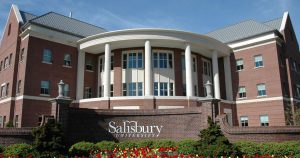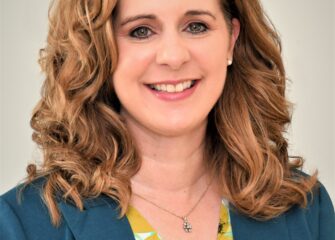
Salisbury, MD – In its preparation of the teachers of tomorrow, Salisbury University’s Samuel W. and Marilyn C. Seidel School of Education excels in getting teacher candidates into the classroom early through a myriad of connections to local schools.
That network, experience and philosophy will increase with the recent announcement of a partnership between the Seidel School and Worcester County Public Schools in the third cohort of the Learning by Scientific Design Network, facilitated by Deans for Impact (DFI).
“Worcester County has been very successful with its state assessments, and doing this work with a district like Worcester, which is showing such success, can really help us deepen our partnership,” said Dr. Laurie Henry, dean of the Seidel School.
“It can also help our teacher candidates be better prepared for Day One as new teachers by working shoulder-to-shoulder, not just with a mentor teacher, but through professional development that this network will provide. They’ll really be inducted into the profession earlier than they would as a new teacher.”
According to the Learning Policy Institute, new teachers who have completed comprehensive preparation makes them two to three times more likely to stay in the classroom for the long term.
“Students don’t get to choose their teachers,” said Valerie Sakimura, executive director at DFI. “Students of color and students in underserved communities are more likely to be in the classroom of a novice teacher.
“By supporting educational preparation programs and districts to set aspiring and early-career teachers up with a strong continuum of evidence-based instructional support, we can ensure that all the students they serve are accessing rigorous, quality instruction, regardless of how much classroom experience their teacher has.”
The Learning by Scientific Design Network seeks to strengthen aspiring teachers’ instructional skills by grounding their practice in a scientific understanding of how students learn. The network will bring together SU’s teacher candidates, Worcester County mentor teachers and administrators for professional development, allowing for a coordinated educational effort.
“The goal is that our faculty will start building the Learning by Scientific Design principles into their methods courses and get at a couple of key components,” said Henry.
“All involved will participate in some professional development together from Deans for Impact, around the key principles. The mentor teachers will be learning them, our teacher candidates will be learning them, and when we put those teacher candidates in those teacher mentors’ classrooms, they’re all on the same page.”
Leading the way from SU faculty will be Dr. Brian Flores, with a focus in literacy and deeper learning; Dr. Gurupriya Ramanathan, with a focus in early childhood science methods; and Niya Brown, a former Worcester County teacher, with a focus in how to motivate learners.
“When we look at learning sciences, it’s a theoretical framework and a body of research that comes from the cognitive side – how the brain responds to different aptitudes of learning – so that’s what this work is doing and it’s enhancing what our faculty are already doing in the classroom,” said Henry.
Preparation will continue through the summer before being implemented in classrooms at SU and Worcester County schools this fall.
Learn more about SU and opportunities to Make Tomorrow Yours at www.salisbury.edu.




